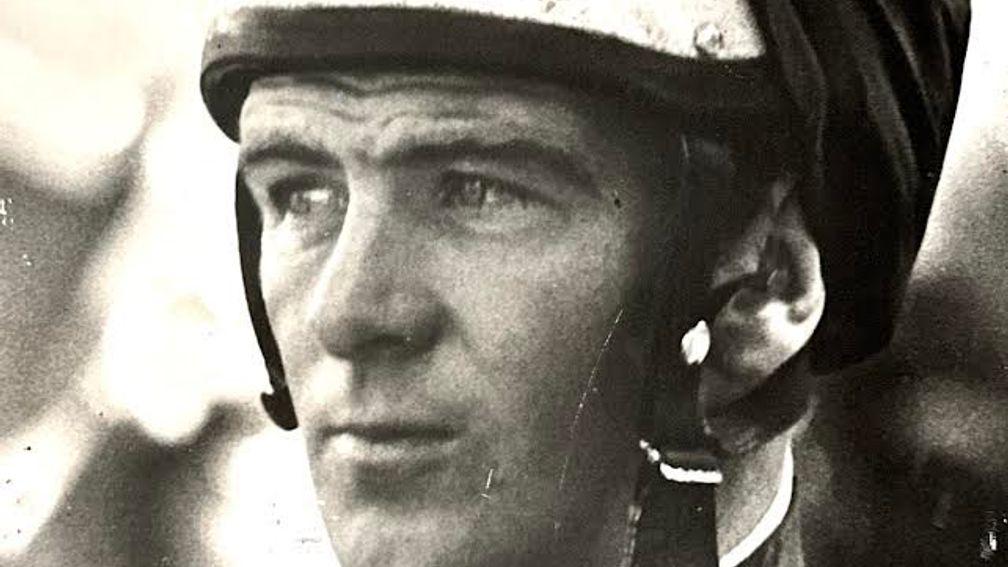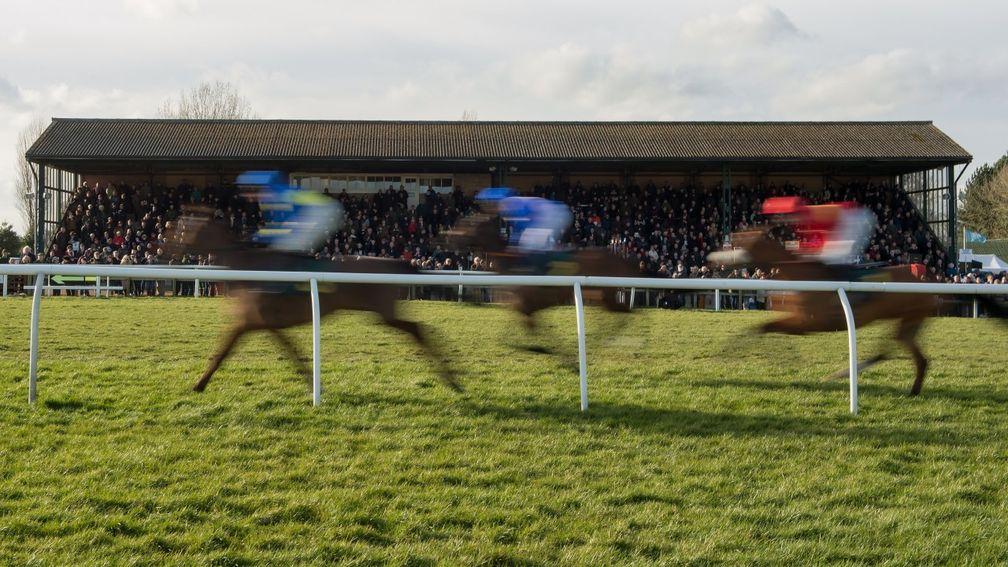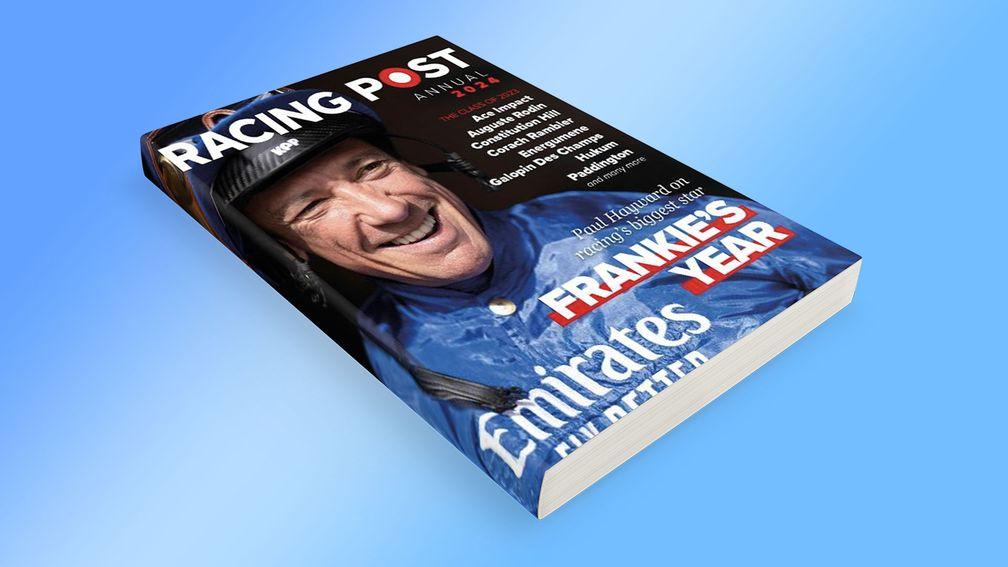Remembering Alan Horrocks: Dad’s passion for horses and people shone through

I write to thank everyone who took the time to attend the funeral of my father Alan Horrocks this week and for all the kind messages from everyone who knew him.
In a way I was not surprised. Dad always offered a helping hand, sometimes to his detriment. His love of seeing young people succeed was one of his best traits and that was echoed in many of the messages.
He adored this sport and his enthusiasm left its mark on anyone lucky enough to be in his presence.
“Have saddle, will travel” and “It’s nice to be nice” were a couple of the nuggets he used to share to help inspire the next young apprentice. To see someone do well in life gave him so much joy.
I will always remember his passion for animals, especially the thoroughbred.
Long after he retired from the industry, standing on the doorstep in whatever the North Yorkshire weather threw at us, he would ask one of the passing work riders “What’s that one by, love?”. He did it in his friendly Lancashire accent but would be quick to share his disappointment if they didn’t know the answer.
He was five foot nothing with piercing blues eyes, a cheeky grin and a strong handshake, not to mention a big heart with a quick temper. He was forever fighting for the underdog.
Losing two daughters and the pain that accompanies that loss is something I will never understand, and I will forever admire my parents for the strength they have shown.
Those of us left behind know that loss and pain, yet I can’t help but feel a small piece of joy as I imagine my father with a cold beer in his hand, sitting with my two sisters and reminiscing over old times.
“See you sometime maybe,” was always his way of saying goodbye.
See you sometime maybe Dad, leave a cold one for me.
Nathan Horrocks
A loving son
Allow us to focus on the sport when we go racing
I agreed with David Jennings in his Saturday column in that we must do more about the raceday experience.
I have and still do try to encourage new people to the sport to join me for a day at the races. But the one thing that irks me is that we in racing assume everyone who attends is a racing fan of old.
We have screens dotted around most tracks, but why is it that once a race has finished, the screens then often show racing from other venues? Surely many repeats of the contest that has just finished is a must, but then the screens should also be showing a build-up presentation of the next race at the venue people are attending, including a list of jockeys, pictures from the parade ring etc.
Another must is to have dedicated images of the previous results from the track they are attending. These are often impossible to source, even in the on-course betting offices as their screens are full of results from dog and virtual racing.
People do not go to the races for other distractions, they mainly go to see live racing and all that goes with the process of finding a winner or just loving and being part of the event which is taking place in front of them. Hence can we just concentrate on the action that is taking place at the track that people have paid to get into?
Mo Charge
King’s Lynn
Competition is key
During a critical time for the sport it appears too many British races either fall into the insufficient runner category or lack in competitive depth with these aspects spreading into more and more race types. This may well have consequences for the levy.
Maidens/novices in both Flat and jumps seem to be featuring more examples of what race commentators describe as two races for the price of one with well-backed horses dominating the betting and then the rest. This aspect seems to apply almost regardless of field size.
More worrying is that more and more handicaps appear to be following suit, particularly in lowerrated Flat handicaps. Why?
Understandably there has been enormous focus on affordability checks in recent months, while there has also been the unveiling of the 2024 fixture list with Premier racing and supporting targets and measures.
One feature is the reduction of 300 races from the jumps programme which logically should improve field sizes. As far as I can determine, no such reduction has been applied to the Flat, merely a redistribution of fixtures through the year.
The BHA has stated that the plans for the next two years are only the beginning of transforming the sport, but how will the proposed changes have the effect of increasing overall competition?
Without this aspect being addressed, surely the day-to-day racing product will continue to become less popular with fans, racegoers and bettors whilst less profitable for betting organisations.
Brian C Kennedy
Paisley, Renfrewshire
Small fields at the bottom
I don't agree with Alistair Jones in his Weekender column (November 29) that small fields are nothing new.
As I’m sure he knows, to produce one top Grade 1 horse you need a large base of lower-graded horses.
Like a pyramid, the wider the base, the less there will be in each class as it climbs to the top where hopefully it will result in a few Grade 1 horses of top quality.
Unfortunately, that base at the bottom is in decline. We now see four- and five-runner Class 5 races which was not the case a few years ago, and that can only result in fewer top-class jumps horses bred in Britain. Indeed, most of the top National Hunt horses are bred in Ireland and France.
Smaller fields can result in the loss of racegoers, as many like me will no longer support meetings that have cards full of four- or five-runner Class 5s.
It may be acceptable to see the likes of Bravemansgame and others of that quality race in small fields, but no one wants to see such low numbers at basement level.
James Bradley
Goole, Yorkshire

Unappealing for owners
Another day, another headline highlighting the headwinds facing British racing, and it has caused me to reflect on my own ownership journey.
In 2002 my first horse, Port St Charles, rated 65, won a handicap at Warwick (thank you, Liam Keniry and Patrick Chamings, who are still turning out winners today). He won £3,220 in prize-money.
My most recent ownership success came in July when Darvel, rated 66, won a handicap at Brighton, winning £3,245.
So two horses of identical ability 21 years apart and the passage of time generated an additional £25 in winning prize-money!
During this same period, training fees, jockeys’ riding fees, transport costs and veterinary charges have all more than doubled.
Is it any wonder owners are disillusioned and leaving the game in their droves? It used to be possible, with a little luck along the way, to reduce the cost of ownership by having a punt on your horse. But today, with automated online bet restrictions, removal of best odds guarantee and the lack of diversity in on-course bookmaker prices, that is almost impossible.
Incentives shape behaviour, yet there are now so few incentives for owners that a continued decline is almost certain.
Kevin Tyrrell
Exeter
We can turn it around
Having read James Stevens’ thorough review of British owners sending their horses to be trained in Ireland (November 29), it did raise a couple of thoughts.
With the fact so many horses go to Ireland’s top handful of trainers, what impact is that having on smaller trainers on both sides of the Irish Sea?
Does that competition make it even harder for many to train profitably in Ireland and shouldn’t that reflect in smaller outfits in Britain getting a bigger slice of the prize-money pie, at least at the lower levels?
Presumably that is part of the reason we see more of Ireland’s smaller trainers bringing their horses to compete in lower grades over here, with some of Britain’s trainers complaining about that recently.
Maybe that shows just how inextricably these two racing dominions are now linked and how our race programmes should be far more dovetailed together to reflect the truth of the whole industry.
It looks like decades of swings and roundabouts and the occasional see-saw to me.
It seems that the French breeding industry especially is the big winner financially at present, but why could that not be turned around yet again if our own breeding industry and participants in the point-to-point field were to make a concerted effort to compete. What do the winners do that we cannot emulate given time?
Steve Turner
Hellifield, North Yorkshire
Not remotely similar
What an excellent open letter from John Gosden via the Racing Post on the threat posed by the ill-considered affordability checks.
Gosden is absolutely right to make a clear distinction between online casino-style gambling and betting on horses.
I have been betting seriously on horseracing for over 20 years. In that time I have never once used online gaming. They remain, thankfully, baffling and a complete mystery to me. I have no interest in that form of gambling whatsoever and am certain I am typical of legions of punters who study the form and only bet on horses.
So why oh why are we being dragged into this affordability nonsense? Are these people in high places so lacking in knowledge of how people bet that they cannot discern an obvious difference?
Racing must keep up the campaign for the sake of the sport’s future.
Rupert King
Lewisham, London
It’s frustrating being a fan
Why do the big stables here in Britain avoid taking their horses to Ireland all year?
Trainers moan about having nowhere to run their best horses, but being a jumps fan is very frustrating, having to wait until Cheltenham in March for the big guns to compete against each other.
Imagine if Manchester City only played against Liverpool once and it was only at the end of May.
S Khan
Brighton
Those were the days
Those of us old-timers who bemoan the fact that the Champion Hurdle is not what it was in the old days can take heart from the recent revelation that only Constitution Hill’s Timeform rating for two-mile hurdlers approaches the ratings of five other past winners of the Champion, four of whom – Night Nurse, Monksfield, Persian War, and Comedy of Errors – achieved their figures in the 70s.
The fifth was Istabraq in 1998, and the absence of a truly smart performance this century other than Constitution Hill adds some credibility to our version of “those were the days my friend”.
John McDonald
Nantwich, Cheshire
Read more here
David Armstrong: 2024 looks likely to be a very tough year for the sport
The Cheltenham Gold Cup doesn't 'break' horses - and here's why

The Racing Post Annual 2024 is out now! This exciting review of the racing year has 208 colour pages packed with the best stories and is beautifully illustrated with stunning images. The perfect gift at £19.99. To order, click here or call 01933 304858.
Published on inLetters
Last updated
- Racecourses must take note, many people still use cash
- Crowds can return to the racetrack if we deal with the costs and touts
- Don't ditch classifieds - we need these types of races more than ever
- Parading the runners at racecourses must be front and centre
- John Dawson’s overzealous ban for Hunters' Chase winning ride ruined a wonderful story
- Racecourses must take note, many people still use cash
- Crowds can return to the racetrack if we deal with the costs and touts
- Don't ditch classifieds - we need these types of races more than ever
- Parading the runners at racecourses must be front and centre
- John Dawson’s overzealous ban for Hunters' Chase winning ride ruined a wonderful story